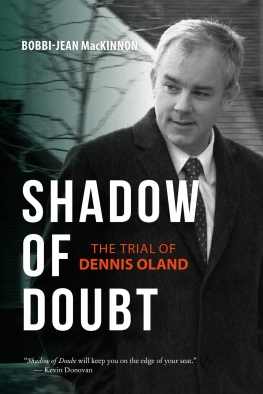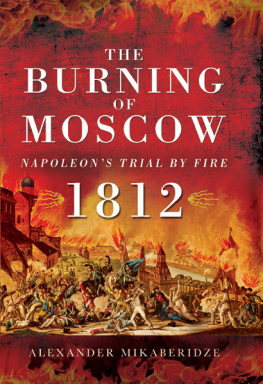Dennis Nowell Pritt - At the Moscow Trial
Here you can read online Dennis Nowell Pritt - At the Moscow Trial full text of the book (entire story) in english for free. Download pdf and epub, get meaning, cover and reviews about this ebook. City: New York City, year: 1937, publisher: International Publishers, genre: History. Description of the work, (preface) as well as reviews are available. Best literature library LitArk.com created for fans of good reading and offers a wide selection of genres:
Romance novel
Science fiction
Adventure
Detective
Science
History
Home and family
Prose
Art
Politics
Computer
Non-fiction
Religion
Business
Children
Humor
Choose a favorite category and find really read worthwhile books. Enjoy immersion in the world of imagination, feel the emotions of the characters or learn something new for yourself, make an fascinating discovery.

- Book:At the Moscow Trial
- Author:
- Publisher:International Publishers
- Genre:
- Year:1937
- City:New York City
- Rating:4 / 5
- Favourites:Add to favourites
- Your mark:
- 80
- 1
- 2
- 3
- 4
- 5
At the Moscow Trial: summary, description and annotation
We offer to read an annotation, description, summary or preface (depends on what the author of the book "At the Moscow Trial" wrote himself). If you haven't found the necessary information about the book — write in the comments, we will try to find it.
At the Moscow Trial — read online for free the complete book (whole text) full work
Below is the text of the book, divided by pages. System saving the place of the last page read, allows you to conveniently read the book "At the Moscow Trial" online for free, without having to search again every time where you left off. Put a bookmark, and you can go to the page where you finished reading at any time.
Font size:
Interval:
Bookmark:
Dennis Nowell Pritt
King's Counsel (1927)
Member of Parliament (Labor Party) for North Hammersmith since 1935
Chairman, Howard League for Penal Reform
Chairman, Bentham Committee for Poor Litigants
Author of "The Russian Legal System" (Twelve Studies in Soviet Russia), edited for New Fabian Research Bureau by Margaret Cole)
Printed in the U.S.A. (1937)
By D. N. Pritt
The trial of Zinoviev, Kamenev, Yefdokimov, Bakaief, and twelve other persons accused of participation in terrorist conspiracies against the Government of the Soviet Union, which was held in Moscow in the latter part of August 1936, resulting in all the accused being sentenced to death and executed, has given rise to a good deal of criticism in Great Britain. Some of this criticism was frankly unscrupulous, and a great deal of it was based on unjustified assumptions that the Soviet authorities had been guilty of any and every abuse; but much of it was made in good faith. It seems clear, too, that some criticisms were unfortunately brought about in whole or in part by inaccuracies in or misunderstanding of the reports which reached this country. Indeed, the more I study the whole of the available material, with the advantage both of my professional training and of having been present at the hearing, and compare it with the very condensed reports which were all that was before most of the critics when they wrote at any rate their earlier criticisms, the more forgiving I feel even towards some of the critics whose conclusions have to my mind been most unsound. The criticism comes, of course, by no means solely from those observers of whom it is right to say that all they have ever either reported or prophesied about the Soviet Union has been wrong; the critics include both newspapers and individuals of very high reputation for fairness. It should be realized at the outset, of course, that the critics who refuse to believe that Zinoviev or Kamenev could possibly have conspired to murder Kirov, Stalin, Voroshilov, and others, even when they say themselves that they did, are in a grave logical difficulty. For, if they thus dismiss the whole case for the prosecution as a "frame-up," it follows inescapably that Stalin and a substantial number of other high officials, including presumably the judges and the prosecutor, were themselves guilty of a foul conspiracy to procure the judicial murder of Zinoviev, Kamenev, and a fair number of other persons. Of course, the less scrupulous critics will be delighted to support that theory; they would always pref er to blacken the rulers of a Socialist country rather than people who confess to having sought to assassinate those rulers; but some of us with memories will find their sudden affection and admiration for Zinoviev and all the "Old Guard" a little comic.
Turning now to the criticisms, it is of course important that whatever their source they should be answered fully and fairly. We are not merely living in an epoch in which one country after another is in danger of economic collapse or Fascist barbarism, or both, if it cannot achieve Socialist government; but in narrower and more immediate politics it is of tremendous importance to peace and progress that no misunderstandings, particularly no manufactured or engineered misunderstandings, should arise between U.S.S.R. and the Western democracies. As I have had the advantage of having studied Soviet legal procedure pretty thoroughly for some years past, and also of having attended the trial in question, I would like to state and answer as briefly and as clearly as I can the main criticisms that have been made in Great Britain.
Probably the most general and important criticism that has been made is the simple one that it is incredible that men should confess openly and fully to crimes of the gravity of those in question here. Associated with this criticism there comes the suggestion that the confessions must have been extracted by "third degree" or other improper means. I can deal with these two points more or less together, starting with the more general one.
The critics seem to accept almost as a proof that there must be something ungenuine about the prosecution, the fact that the accused (with minor exceptions which I will discuss later) pleaded guilty, and admitted their misdeeds fully and frankly; and, however difficult one may find it to follow the logic of this, it would be wrong to ignore the fact that the apparent abjectness and eagerness of the confessions make curious reading to the student more accustomed to English procedure. This latter point is, I think, sufficiently explained when one bears in mind the very great differences in form and style that naturally exist between one race and another. If one asked an educated Frenchman, an educated Englishman, and an educated German, to state in his own way, and as briefly or as fully as he thought convenient, any simple concept, or even any set of concrete facts, the three results would be very different indeed in length, form, style, and even content. The more important point, and the one to which I wish to give a good deal of care, whether I concede it any logical strength or not, is the point that in the circumstances the pleas of guilty themselves suggest that there is something wrong or fictitious in the prosecution. Now, it will surely be conceded that in all countries, even in those most fully supplied with able and ingenious defense lawyers, prisoners do sometimes plead guilty to charges, even to serious charges, when they see that the evidence against them is overwhelming. My friends in U.S.S.R. tell me that this is more common in their country than in some others, and they speak with not too tolerant contempt of systems under which accused persons who are obviously guilty will consume precious time and energy in wriggling and putting up technical defenses; and I am bound to say, as some confirmation of this assertion, that in conversations I have held in Soviet prisons with accused persons awaiting trial on substantial charges, I have not infrequently been struck by the readiness with which they have stated to me in the presence of warders that they are guilty and cannot complain if they are punished. (And, of course, we often hear, even in England, of prisoners being congratulated on having pleaded guilty, and sometimes treated more leniently because they have not taken up time putting forward unsubstantial defenses.) Soviet procedure gives the accused ample opportunity to see what the strength of the prosecution's case is, as does the English, although the two systems are somewhat different in respect of the preliminary proceedings. In England and the countries which derive their system from England, the evidence in cases of any importance is, so to speak, rehearsed in open court before the magistrates in the proceedings prior to committal for trial. In very many countries, however, including U.S.S.R. and, I think, every other European country that has a regular procedure, there is no proceeding in open court before the trial, but the evidence is prepared and developed privately in preliminary proceedings by way of investigation, which generally includes a detailed examination of the accused. From the course of this investigation, and in particular from a study of the dossier or record and of the indictment, which he has a right to see after the preliminary proceedings have been closed, the accused or his advocate has full opportunity to gauge the strength of the prosecution's case. Both these systems of procedure have their advantages and their disadvantages from the point of view of the prisoner's prospects of acquittal and from that of the efficient administration of justice in the public interest; opinions differ as to their respective merits, and to discuss the point in detail would be a long task, but the responsible critic will guard himself against the assumption that there must be some serious defects in any procedure which does not follow closely the lines of the English system which he has been brought up to revere with the same unquestioning loyalty that his father or his grandfather devoted to the blind acceptance of the efficiency of the British Navy. Indeed, I do not gather that the critics of the present trial complain as a matter of principle that there is anything wrong in the Soviet courts employing substantially the system of other Continental countries instead of that of the English jurisdictions it may well be, of course, that many of them do not know anything about the two procedures or the differences between them and for our present point it is enough to say that the two systems are alike in giving the accused full opportunity to see clearly the strength of the case against him and to make up his mind whether he will plead guilty or not.
Next pageFont size:
Interval:
Bookmark:
Similar books «At the Moscow Trial»
Look at similar books to At the Moscow Trial. We have selected literature similar in name and meaning in the hope of providing readers with more options to find new, interesting, not yet read works.
Discussion, reviews of the book At the Moscow Trial and just readers' own opinions. Leave your comments, write what you think about the work, its meaning or the main characters. Specify what exactly you liked and what you didn't like, and why you think so.








